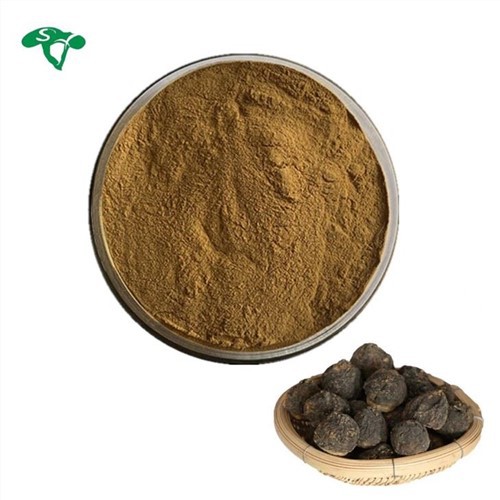New Progress Has Been Made in The Regulation Of Intestinal Flora By Astragalus Polysaccharides
2023-08-14 09:37:51
Recently, Desulfovibrio Vulgaris (Desulfovibrio Vulgaris), a high-efficiency acetic acid producing bacterium, has been published online in the international journal of Microbiology by Gut Microbes (District 1). A potent acetic acid-producing bacterium, attenuates nonalcoholic fatty liver disease in mice.
Non-alcoholic fatty liver disease (NAFLD) is the most common chronic liver disease, and currently there is still a lack of effective treatment drugs. A large number of studies have shown that intestinal microbiota disorder is an important factor in the pathogenesis of obesity-based metabolic diseases. Therefore, targeting intestinal microbiota regulation is considered as an important new strategy for theprevention and treatment of metabolic diseases.
Polysaccharides are a kind of natural macromolecular compounds widely distributed in Traditional Chinese medicine. A large number of studies have shown that plant polysaccharides have definite effects on metabolism regulation, but the exact mechanism is not completely clear. Houkai Li's team demonstrated in previous studies that astragalus membranaceus polysaccharides, the main effective part of astragalus membranaceus, could improve obesity and NAFLD, and observed the regulatory effect of ASTRagalus membranaceus polysaccharides on intestinal flora and metabolites through metagenomic combined with untargeted metabonomics analysis. The axis hypothesis of "drug-intestinal microbiota - metabolite - host metabolism" was proposed to improve NAFLD formation by APS.
Based on this scientific hypothesis, the research team explored specific intestinal bacteria and related metabolites regulated by APS through multi-omics combination strategy, and found that THE improvement of NAFLD by APS not only has the characteristics of flora dependence, but also can significantly enrich intestinal bacteria (Desulfovibrio Vulgaris). Further studies confirmed that the bacterium was not only a natural H2S producer, but also had an efficient ability to produce acetic acid. Exogenous supplementation of this bacterium significantly improved hepatic steatosis, insulin sensitivity and weight gain in mice fed a high-fat diet. Through liver RNA SEQ analysis and molecular biology study, it was confirmed that the improvement of NAFLD was related to the inhibition of liver FASN and CD36 protein expression. This study provided new evidence to explain the mechanism of APS in improving NAFLD, and also provided a reference for exploring the mechanism of APS in regulating intestinal flora and improving host metabolism with the help of multiomics technology.
The analysis of astragalus polysaccharide monosaccharide components in this study was assisted by Professor Ding Kan's team from Shanghai Institute of Materia Medica, Chinese Academy of Sciences, and the targeted metabolomics and subject design were strongly supported by Professor Jia Wei's team from The Sixth People's Hospital affiliated to Shanghai Jiao Tong University. Ningning Zheng and Wei Jia are co-corresponding authors of the paper. Hong Ying, a doctoral candidate of Professor Li Houkai's group, is the first author of the paper, and Shanghai University of Traditional Chinese Medicine is the first signatory of the paper. The research was funded by the National Natural Science Research Foundation of China.







